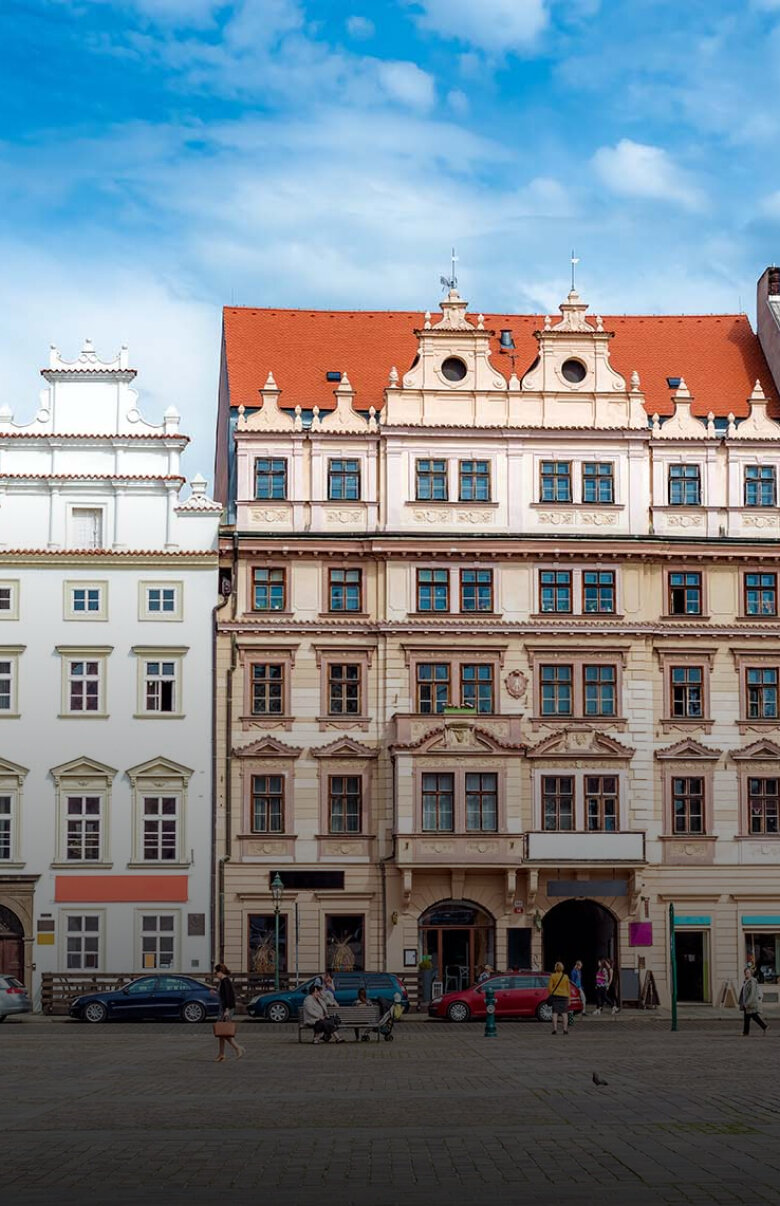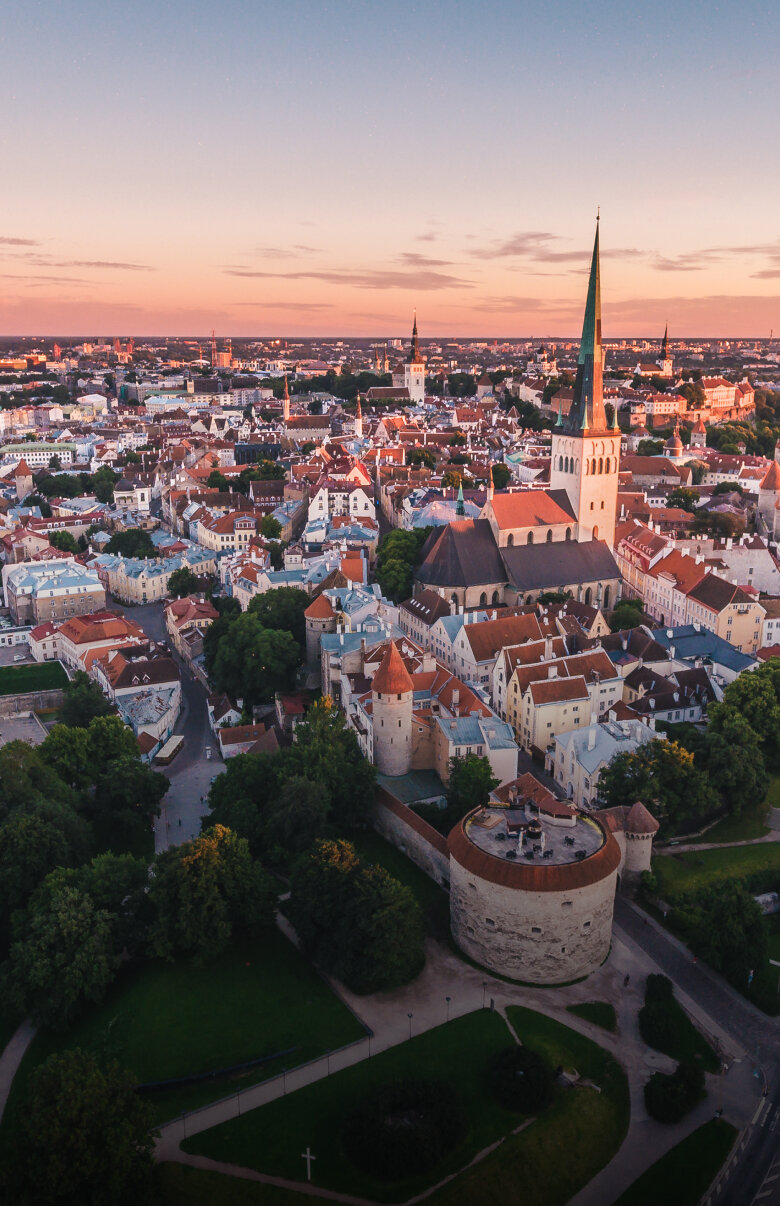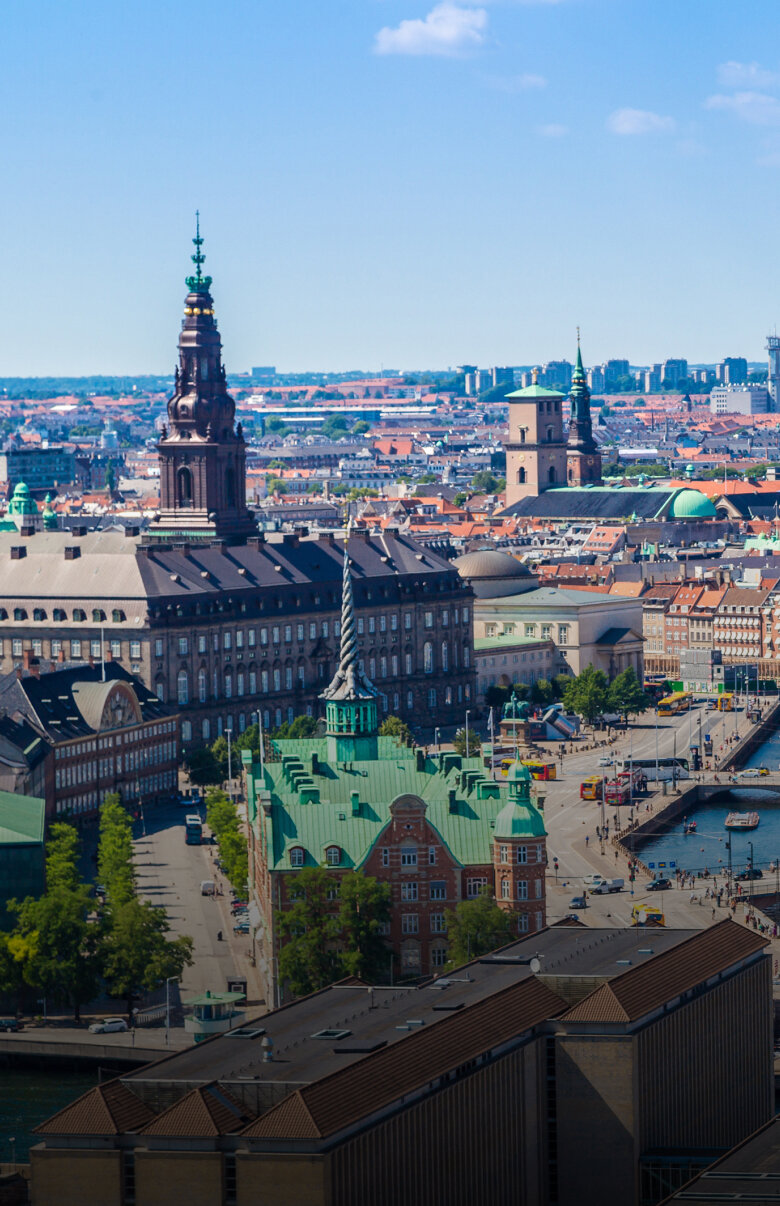Universities
Studying medicine in Denmark
Our northern neighbour Denmark, which is known above all for its mystical fjords, its wild coastline and its progressiveness in areas such as equal rights or environmental protection, also offers an excellent medical degree. This is particularly interesting if you want to study medicine because of the NC you have no chance of getting a place at university in Germany.
Are you interested in studying medicine in Denmark?
We would be happy to advise you free of charge about your options for studying medicine in Denmark.
What are the advantages of studying medicine in Denmark?
Cosy student towns surrounded by a picturesque landscape - that sounds good. But that's not the only thing that makes studying medicine in Denmark unique.
No 1.0 NC required
You do not need a 1.0 NC to be admitted to study medicine in Denmark. And even if your grade point average is above 3.0, you have a chance of being admitted via an entrance test. Medical study place. And we'll help you make it work!
No tuition fees
In contrast to many other countries, there are no tuition fees for foreign students at Danish universities.
High quality education
If you start your medical career at a Danish university, you will have secured a high-quality education. Denmark is known for its outstanding education system, which is characterised by its strong emphasis on teamwork and early learning of practical skills.
World-class healthcare
The Danish healthcare system is internationally recognised as extremely progressive. In well-equipped hospitals, you can learn from well-trained staff at the cutting edge of medical science.

Together for success - futuredoctor and studying medicine abroad
Would you like to Study medicine abroad and are looking for the most suitable university for you and don't really know where to start looking for a suitable country and a good university? futuredoctor will be happy to support you!
In addition to the Student counselling In addition to selecting the university and accompanying you to the desired on-site appointments, futuredoctor also offers support during the application process and preparation for possible aptitude tests and subsequent orientation at the place of study - right through to finding accommodation! Get your Free information pack!
At which universities is it possible to study medicine in Denmark?
Danish universities offer a medical degree programme at a high level and place great emphasis on practical experience and research. However, the language of instruction is mostly Danish, but preparatory courses and the proximity to English can be achieved if you are motivated. Below you will find more information about the four universities where it is possible to study medicine:
University of Copenhagen (University of Copenhagen)
The University of Copenhagen is the oldest and largest university in Denmark. Its medical faculty is internationally recognised for its research and excellent education. The medical degree programme is taught in Danish, with part of the Master's course taught in English. You will be in the same class for most of your training. This creates a good and close bond between the students. You will also have experienced tutors at your side, especially in the first few years, to help you get off to a good start.
The capital of Denmark is a cultural centre with many sights that you can easily explore by bike. You shouldn't miss out on a visit to the colourful houses in the Nyhavn district or the royal Amalienborg Palace.
Aalborg University (University of Aalborg/ Aalborg Universitet)
The degree programme at the Faculty of Medicine at Aalborg University is taught in Danish. Numerous research projects give you an insight into medical science. The programme is usually taught in small groups, combining lectures, clinical placements and problem-oriented project work. The lessons are often linked to medical cases so that you can establish a connection between your knowledge and practice.
As a student city, Aalborg offers you a high quality of life and a bike-friendly environment. You can explore the city's rich cultural programme with students from all over the world.
University of Odense (University of Southern Denmark/ Syddansk Universitet)
What makes studying medicine at the University of Southern Denmark unique is the early combination of theory and practice and the patient-centred examination format. You will get to know patients during your training. This gives you the opportunity to apply the knowledge you have learnt and gain practical skills. Lectures on the Bachelor's and Master's degree programmes in Human Medicine are held in Danish.
Denmark's third largest city, Odense, is located on the island of Funen (Fyn) in the region of southern Denmark. Surrounded by breathtaking scenery, you can enjoy your lecture-free time in the city's small cafés, cosy restaurants or international bars.
University of Aarhus (Aarhus University)
At the renowned University of Aarhus, you can study for a Bachelor's and Master's degree in Danish. Study human medicine. Teaching takes place primarily in small groups, which are divided up at the beginning of the programme. This close Contact us You can quickly make friends with your fellow students.
Aarhus is the second largest city in Denmark. The former Viking settlement has now developed into a lively student city and attracts young people from all over the world.
What are the requirements for studying medicine in Denmark?
The basic requirement for studying in Denmark is a university entrance qualification, i.e. the Abitur. Universities often require good grades in the natural sciences, maths and English. A good grade point average is generally an advantage when applying to Danish universities, as this counts in the contingent 1. The universities require a minimum average of 6.0 in the Danish education system, which corresponds to a German grade of 3.0. The average grade of applications is between 1.7 and 2.0. Previous education can also give you an advantage.
If your grade point average is lower than 3.0, you have the option of applying via contingent 2. If you pass the UCPH exam, you can still be admitted to the medical degree programme. This test lasts two hours and consists of a language and a maths and logic section.
As the majority of Danish medical universities offer degree programmes in Danish, you will need the appropriate language skills. An official language certificate at language level B2 is often required. You should also prove your English language skills with a TOEFL, Cambridge or IELTS test.
No A-levels? This is not possible in Denmark, but in some other European countries there is the option of a Studying medicine with a specialised baccalaureate.
Structure of medical studies in Denmark
How long does it take to study medicine in Denmark? The content and structure differ slightly between the individual universities, but the duration of the medical degree programme is six years in total, as in Germany.
The medical degree programme in Denmark is divided into a 3-year Bachelor's degree and a 3-year Master's degree in medicine.
Teaching on the Bachelor's degree programme alternates between lectures, practical exercises in small groups and courses with case studies. The subject areas of the Bachelor's programme are mainly basic subjects such as cell biology and genetics, as well as anatomy, biochemistry and physiology.
During your subsequent Master's degree programme, you will learn basic medical and surgical training in the first to third semesters. In addition to behavioural and methodological subjects, you will acquire knowledge in various medical fields such as internal medicine, pharmacology and anaesthesiology. This knowledge is taught to you in the form of lectures, seminars and practicals. In the following semesters, other specialisms such as psychiatry and neurosurgery are added.
In the last two semesters, you will work on your Master's thesis. This concludes your degree programme and you write it either from a specialist, research or international perspective. Possible subject areas include obstetrics, paediatrics or emergency medicine.
As medical studies in Denmark are recognised in EU countries, you can start working in Germany or another country of your choice after successfully completing your studies.
How much does it cost to study medicine in Denmark?
If you are accepted at a university in Denmark, you do not have to pay tuition fees for your subsequent medical studies. This is a big advantage compared to other European countries.
The Costs of the medical degree programme therefore mainly relate to the cost of living. You should calculate between 800 and 1,500 euros in total. Depending on where you live and your housing situation, around 400 to 700 euros of this will go towards rent.
Please note: Although Denmark is an EU country, the currency is Danish Kroner.
If you need financial support during your medical studies, a Scholarship certainly just right for you.
Country and people: What you didn't know about Denmark
- What is the magic word? It's not "please", at least not in Denmark. Although the Danish people are considered to be extremely polite and friendly, there is no corresponding Danish translation for the German "Bitte".
- More sea? You're sure to get enough of it in Denmark. Because no matter where you are in Denmark, you can't be further away from the sea than 52 kilometres.
- Denmark is one of the countries with the happiest population in the world. Is it because of the relaxed lifestyle, the tolerant behaviour towards one another or the tranquil landscape? The reason is unclear, but numerous surveys show that the Danish population is extremely happy.
What do you need to consider when applying to study medicine in Denmark?
If you have decided to study medicine at a university in Denmark, you must first have your school-leaving certificate converted to the Danish grading scale. This is usually possible with a certificate obtained in the EU. In addition to your school-leaving certificate, you will also need to submit a few other documents within the University-specific application deadlines submit. Futuredoctor will be happy to advise you.
Are you ready to realise your dream of studying medicine in Denmark? Contact us today and start your journey with futuredoctor. We look forward to accompanying you on your journey and working with you to realise your dream of a career in medicine.
Would you like to complete your studies in another northern country? Then take a look at the following countries: Medical studies Estonia, Medical studies Finland, Medical studies Latvia, Medical studies Sweden, Medical studies Lithuania, Medical studies Norway.
Starting signal
What are you waiting for? 🎉
Order your info pack now, find out more about the Studying medicine abroad and get started as a medical student!
Frequently asked questions
FAQs about studying medicine in Denmark
What are the advantages of studying medicine in Denmark?
The advantages include no required 1.0 NC, no tuition fees, high educational quality and an advanced healthcare system.
Is a perfect grade point average required for admission to medical school in Denmark?
No, a perfect grade point average is not necessary. Even with a grade point average above 3.0, you still have a chance of getting a place at university, especially if you take an entrance test.
Are there tuition fees for international students in Denmark?
No, there are no tuition fees for foreign students at Danish universities.
At which universities in Denmark can I study medicine?
Medical studies are possible at the University of Copenhagen, Aalborg University, Odense University and Aarhus University, among others.
What requirements do I have to fulfil to study medicine in Denmark?
You need a university entrance qualification, good grades in science subjects and English, as well as language skills in Danish and English.
How is the medical degree programme in Denmark structured?
The programme is divided into a 3-year Bachelor's degree and a 3-year Master's degree in medicine, with a focus on basic subjects and practical training.
What does it cost to live while studying medicine in Denmark?
The average cost of living is between 800 euros and 1,500 euros per month, including rent.
What do I need to consider when applying to study medicine in Denmark?
You must have your Abitur certificate converted to the Danish grading scale and submit further documents within the university-specific application deadlines. Futuredoctor offers advice on this.
What are the special features of Denmark as a study country?
Denmark is known for its happy population, proximity to the sea and relaxed lifestyle.
30 countries for your medical studies
The Netherlands
Groningen, Maastricht, Amsterdam, Leiden, Utrecht, Rotterdam

Switzerland
Basel, Fribourg, Berne, Geneva, Zurich, Neuchâtel, Lausanne





























